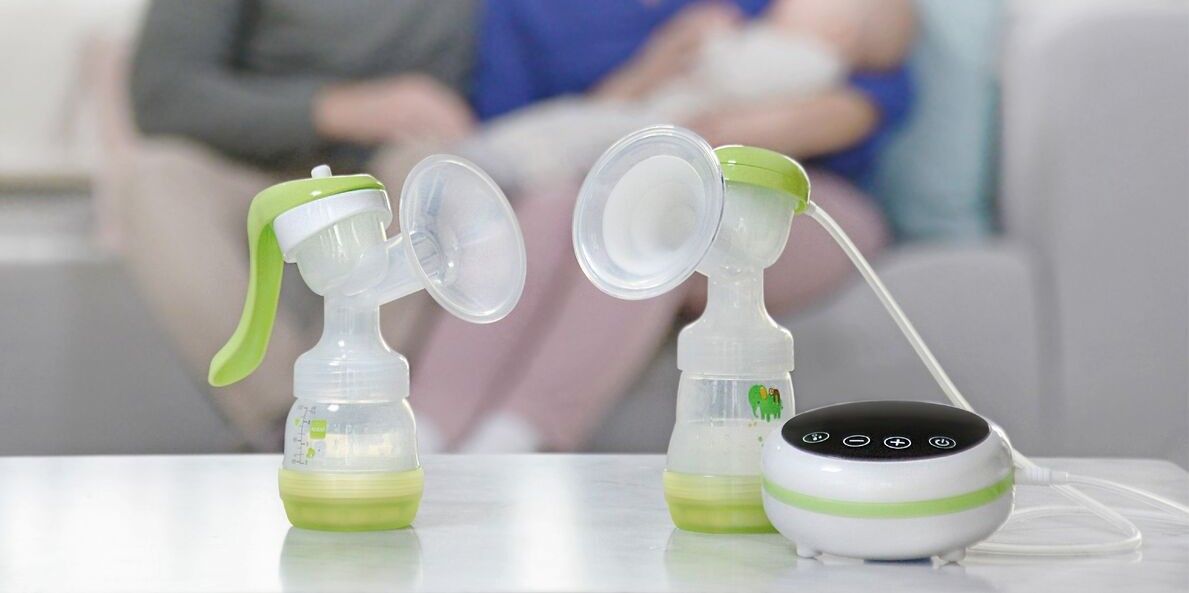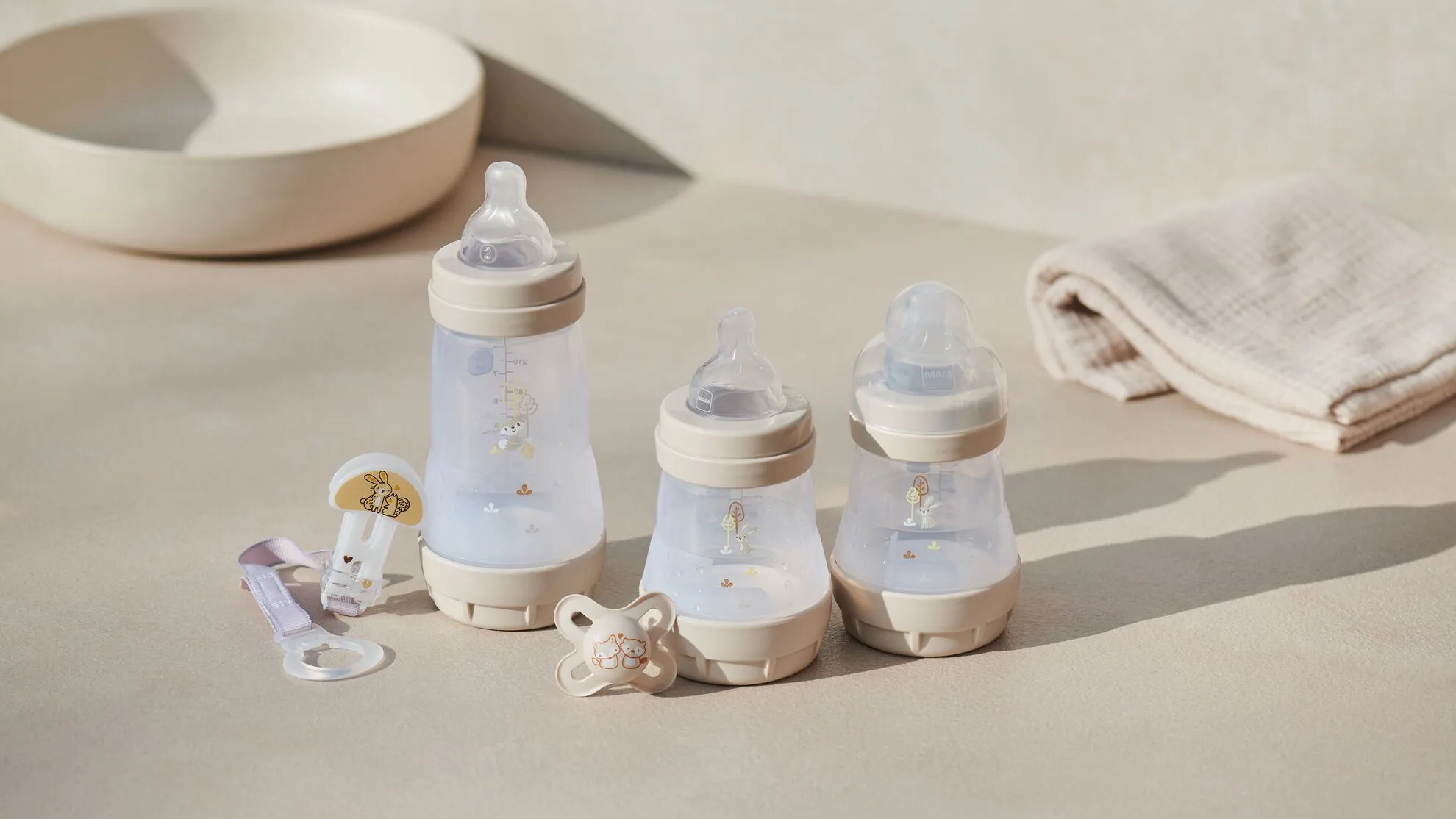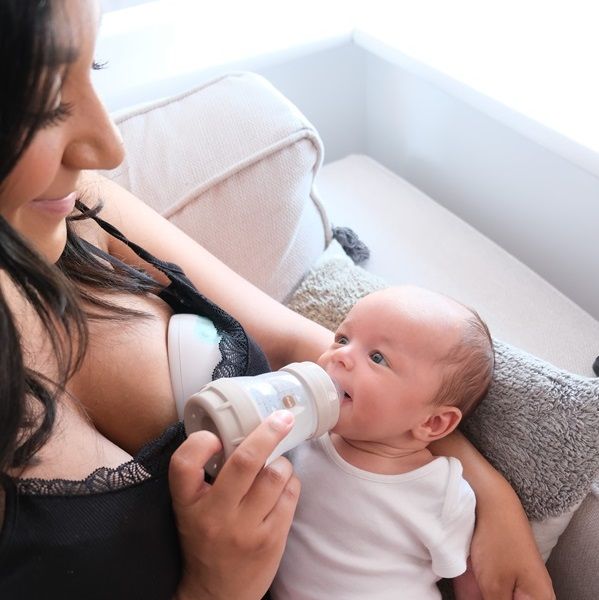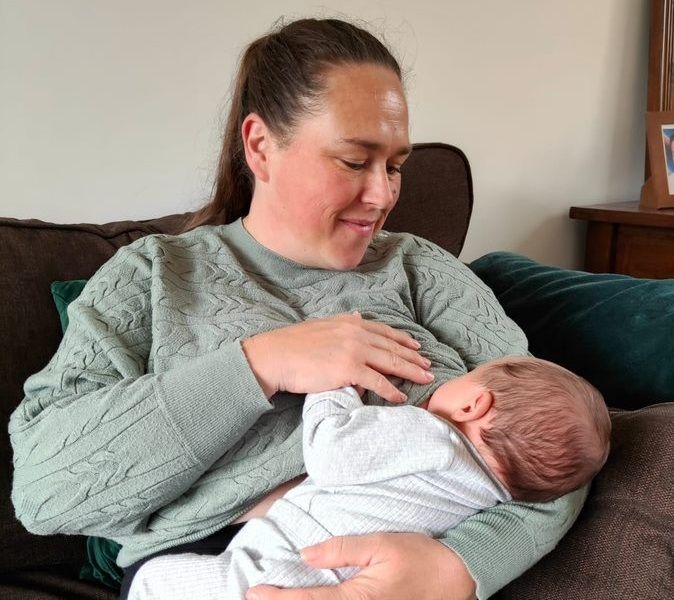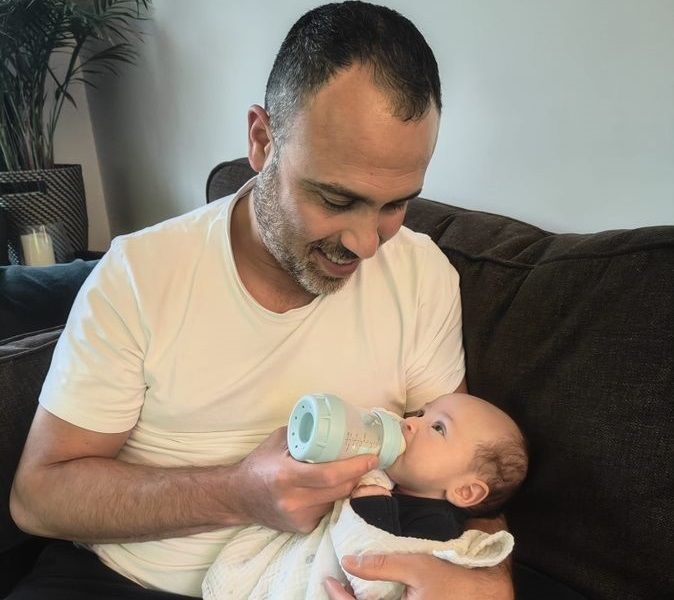"As a breastfeeding mum, I do my best to stick to a well-balanced diet to make sure my baby and I are getting all the good stuff we need. I love my tea and coffee, but I switch to decaf in the afternoons and evenings to help us sleep better. Even with all my planning, I still find myself feeling super hungry a lot of the time, especially with having two older children. To keep myself from reaching for cakes and biscuits, I go for high-protein, high-fibre snacks that actually keep me full. Meal prepping is a lifesaver for me – I make overnight oats and always try to plan ahead. When I’m making dinner, I’ll set aside something for lunch the next day to make sure I’m fuelling my body properly. In the very early days of my third baby, I was recovering from a C-section, so I needed to fuel my body properly to aid my recovery."
Feeding your baby is one of the most rewarding experiences you’ll ever have. However, mums are often told there’s only one perfect way of feeding a baby. Even if they manage to successfully breastfeed, there are still judgements and preconceptions which can make them feel like they’re getting it all wrong. But as with all aspects of the parenting journey, feeding is a completely unique adventure for every mother and baby. We believe that what works for mum works for baby. Whether it’s breastfeeding, bottle feeding, or a combination. Feeding alone or with partners, parents, or friends. At home or on the go. Your way is the right way.
Our new campaign Faces of Feeding shares the feeding stories you might not have heard. We’re here to advocate for every feeding choice and share real feeding moments and meet the families doing it their way.
Become a MAM Face of Feeding
Share your feeding story and help us normalise the unnormal. Every person entering will receive a code for a 20% MAM discount.
- Images in high resolution, portrait format.
- Images should be natural and without picture filters / enhancement.
- We welcome imagery picturing different feeding locations, time of day, and feeding methods.
- Person feeding and baby must both visible
- Details of who is featured in the picture (name, contact details and their relationship to baby
- Up to 500 words explaining why they you love to feature in the campaign explaining your: Family set up (a bit about baby’s parents, siblings, where you live, career and life interests)
- Approach to feeding (breast, bottle, hybrid) and the journey / your experience (highs and lows)
- Any specific challenges you have faced / overcome
- One tip they would share with a first time Mum or Dad / parenting realism or piece of advice they wish they had been told
* Mandatory fields
** Upload pictures with a maximum size of 4MB
Breast feeding FAQs – answered from three perspectives
When it comes to the biggest questions people are asking about feeding, there’s more than one viewpoint. Here are the most popular queries and answers from the NHS, a midwife, and a mum.
"As a breastfeeding mum, I do my best to stick to a well-balanced diet to make sure my baby and I are getting all the good stuff we need. I love my tea and coffee, but I switch to decaf in the afternoons and evenings to help us sleep better. Even with all my planning, I still find myself feeling super hungry a lot of the time, especially with having two older children. To keep myself from reaching for cakes and biscuits, I go for high-protein, high-fibre snacks that actually keep me full. Meal prepping is a lifesaver for me – I make overnight oats and always try to plan ahead. When I’m making dinner, I’ll set aside something for lunch the next day to make sure I’m fuelling my body properly. In the very early days of my third baby, I was recovering from a C-section, so I needed to fuel my body properly to aid my recovery."
Midwife – Angie
"Whether you give just one feed of breast milk, or feed for a week, a month, a year or longer, every breastfeed - even alongside formula - has huge benefits for mum and baby. Each feed of breast milk boosts your baby’s immune system and lowers risks of developing allergies and sudden infant death syndrome (SIDS), especially if breastfeeding before eight weeks. Babies need 8-12 feeds every 24 hours, each lasting 5-45 minutes. Cluster feeding, often in the evening, helps increase milk supply and induce sleep due to melatonin in breast milk.
Every family is different, so do what works best for you. The natural baby weaning typically happens around 3-4 years, but for most families this isn't possible so just do it for as long as you can."















